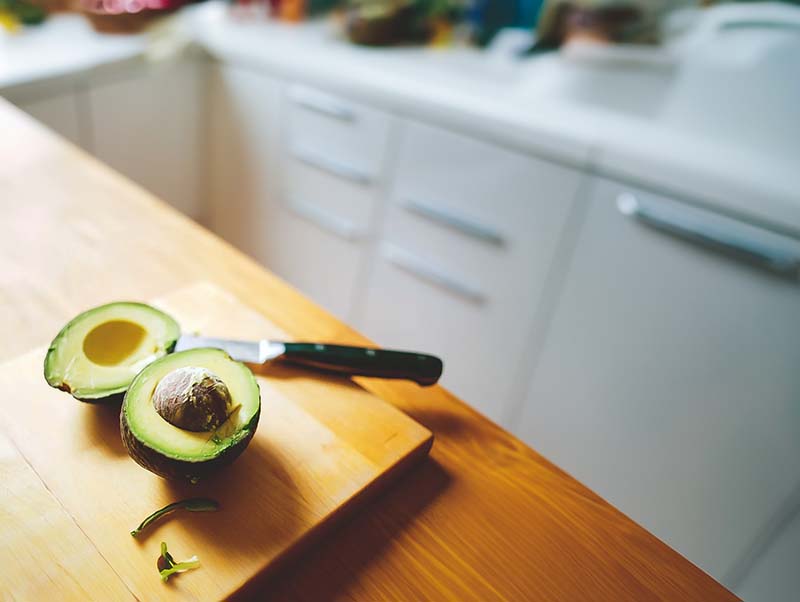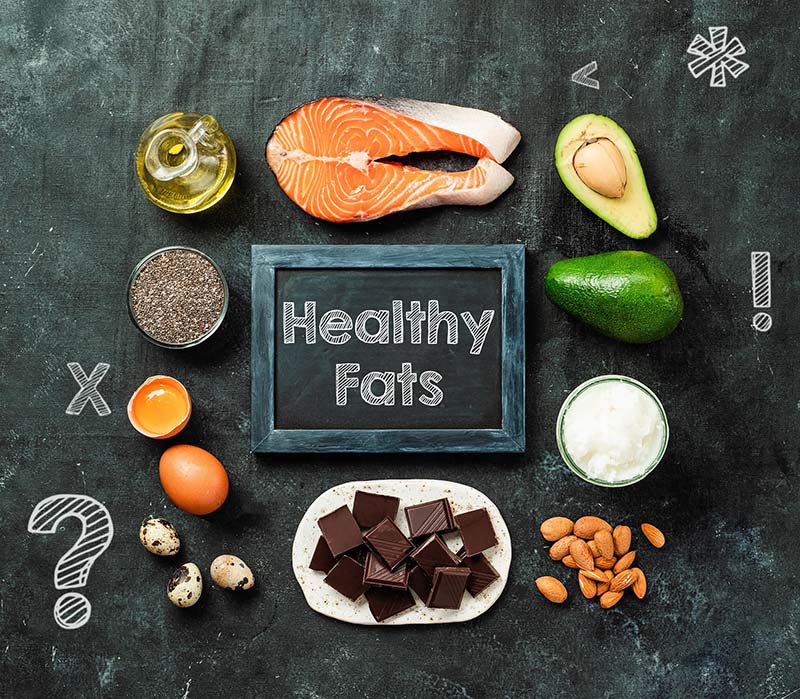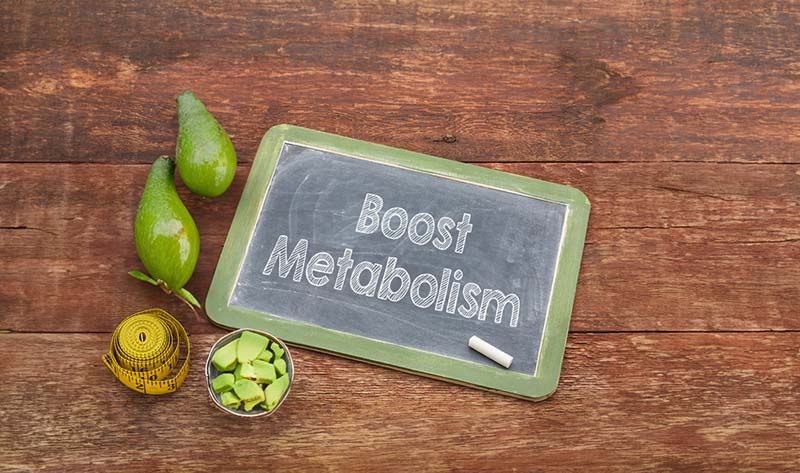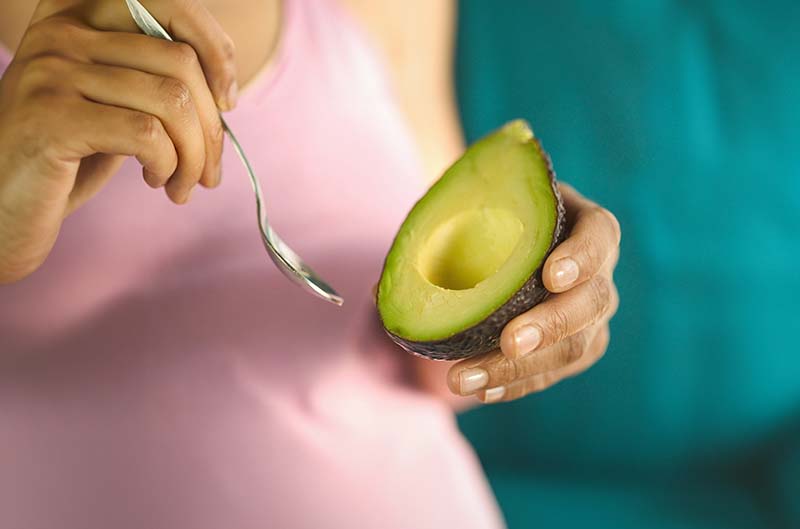Can Avocado Help You Lose Weight? This isn’t just about shedding a few kilos, it’s about embracing a vibrant, confident version of yourself.
So, grab your avocado and get ready to unleash your inner health hero! Let’s turn this weight-loss journey into a delicious adventure, one creamy bite at a time.
Related articles
- Is Asparagus Good for Weight Loss? Benefits and Side Effects.
- Does Kale Help You Lose Weight? Uncover the Truth.
- Does Oatmeal Help with Weight Loss? Nutritional Information.
Does Avocado Help You Lose Weight?
While avocados may not immediately spring to mind as a weight loss aid, they can be surprisingly effective in your journey towards shedding extra pounds. Let’s break down why and how you can make them a part of your diet to slim down effectively.
- Packed with Nutrients: Avocados are loaded with essential vitamins, minerals, and antioxidants that are good for your overall health. This means you can get the necessary nutrients while trying to lose weight.
- Fiber-Packed: Avocados are a great source of dietary fiber. Fiber is known to make you feel full and satisfied, which can be a game-changer in controlling your appetite and preventing overeating.
- Healthy Fats: Avocados do have more calories (about 240 calories per avocado), but they contain good-for-you monounsaturated fats. These fats not only support your heart but also help you feel full, reducing the chances of snacking on unhealthy stuff between meals.
- Watch Your Portions: While avocados are nutritious, it’s crucial not to go overboard. Eating too much can lead to extra calories that hinder your weight loss progress. To keep your portions in check, consider having half an avocado or mixing it with other healthy foods.
- Feeling Full: Some limited research suggests that avocados can help you feel more satisfied after eating. This addresses the question, ‘Does avocado help lose weight?’ by highlighting its role in satiety.
- Swap for Unhealthy Fats: Instead of using butter or mayo, switch to avocados for a healthier alternative. You can spread them on sandwiches or use them in your recipes to cut down on calories without sacrificing flavor.
- Get Creative: Experiment with avocados in low-calorie, nutrient-rich recipes. You can whip up tasty salads, smoothies, or even avocado toast to keep your meals interesting while staying on track with your diet.

Notes:
- Keep an eye on your daily calorie intake when adding avocados to your diet. Too much of a good thing can hinder your weight loss goals.
- Be creative with your avocado recipes but be cautious about high-calorie toppings or ingredients that could offset the weight loss benefits.
- Remember, weight loss involves more than just diet – it’s a whole lifestyle. Avocados can be a helpful part of your strategy, but they should fit into an overall healthy eating plan.
- Whenever you’re making significant dietary changes, consider consulting a healthcare professional or registered dietitian to tailor your approach to your specific needs and goals.
Avocado’s Nutrient Profile
Avocados are a nutritional powerhouse packed with essential vitamins, minerals, healthy fats, and fiber. Let’s take a closer look at the impressive nutrient profile of this green wonder, with a serving size of approximately 3.5 ounces (100 grams), or about half an avocado, containing around 160 calories.
- Vitamin K: Avocados provide 18% of your Daily Value (DV) of vitamin K, which is essential for blood clotting and bone health.
- Folate: With 20% of the DV, avocados are a rich source of folate, crucial for cell division and the formation of DNA.
- Vitamin C: While not as high as some other fruits, avocados still offer 11% of the DV of vitamin C, supporting your immune system and skin health.
- Potassium: You’ll get 10% of your DV of potassium from this serving, helping maintain healthy blood pressure and muscle function.
- Vitamin E: Avocados contribute 14% of the DV of vitamin E, an antioxidant that supports skin health and protects cells from damage.
- Low in Carbs, High in Fiber: Avocados are a unique fruit in that they are low in carbs, containing only 9 grams per serving, with 7 grams coming from dietary fiber. This makes them an excellent choice for those watching their carbohydrate intake.
- Rich in Healthy Fats: Avocados are relatively high in fat, at about 15% of their weight. However, these fats are predominantly heart-healthy monounsaturated fats, which can help lower bad cholesterol levels.
- Additional Micronutrients: Avocados also contain niacin, riboflavin, copper, magnesium, manganese, and an array of antioxidants, further enhancing their nutritional value.

Incorporating avocados into your diet not only provides these essential nutrients but also adds creaminess and flavor to your meals. Whether you slice them for sandwiches, mash them into guacamole, or blend them into smoothies, avocados are a versatile and healthful addition to your menu. So, don’t hesitate to make them a regular part of your diet to reap these nutritional benefits.
Weight Loss Benefits of Avocado
When it comes to your weight loss journey, avocados might just become your new best friend. Let’s dive into some compelling reasons why adding avocados to your diet can help you shed those extra pounds:
Reduce ‘Bad’ Cholesterol Levels
Instead of the usual “an apple a day,” researchers now suggest that it’s an avocado that can significantly impact your cholesterol levels. A study in the Journal of the American Heart Association compared three cholesterol-lowering diets. The group incorporating one whole Haas avocado per day showed a remarkable 13.5 mg/dL decrease in “bad” LDL cholesterol, reducing the risk of heart disease. This effect is attributed to the heart-healthy monounsaturated fats found in avocados.
Reduce The Risk of Diabetes
Avocados are a nutritional powerhouse, offering nearly 20 vitamins, minerals, and phytonutrients essential for healthy weight management. They provide 14 grams of filling fiber and 66% of your daily vitamin K needs, which helps regulate sugar metabolism and insulin sensitivity. Studies suggest that a higher intake of vitamin K is associated with a 19% lower risk of developing diabetes over ten years.

Boost Metabolism
Avocado isn’t just about healthy fats; it can also provide a natural energy boost. Research in the American Journal of Clinical Nutrition compared diets high in saturated fat to those high in monounsaturated fats, the kind found in avocados. The result? A 13.5% increase in physical activity and a 4.5% higher post-meal metabolism during the high monounsaturated fat diet.

Helps Reduce Belly Fat
While research in this area is limited, some studies suggest that consuming one avocado a day can reduce abdominal fat, especially the harmful visceral fat linked to various health issues. The monounsaturated fats in avocados may enhance fat burning, decrease abdominal fat, and increase metabolism after meals.

Enhance Nutrient Absorption
Adding a little fat to your veggies can enhance nutrient absorption, and avocados excel in this regard. Studies have shown that monounsaturated fats in avocados facilitate the absorption of fat-soluble carotenoids, which are associated with improved weight and fat loss. So, consider adding avocados to your salads for a nutrient boost.
Suppress Appetite
Avocados are fiber-rich, with one large avocado containing 13 grams of fiber. Fiber is known for keeping you feeling full and satisfied, and it has minimal impact on blood sugar levels. Additionally, the high healthy fat content in avocados contributes to satiety, helping you eat fewer calories overall.

Antioxidant
Avocados contain antioxidants that combat free radicals in your body, which can damage cells and affect your metabolism. These antioxidants, similar to those found in olive oil, are beneficial for overall health and may help your metabolism run more efficiently.
Improve Meal Quality
Research from the National Health and Nutrition Examination Survey (NHANES) suggests that consuming half a medium-sized avocado daily is associated with improved overall diet quality and a 50% reduced risk of metabolic syndrome, which is linked to weight gain.
Incorporating avocados into your diet can be a delicious and effective way to support your weight loss goals. So, next time you’re at the grocery store, don’t forget to grab some avocados and enjoy their numerous benefits on your journey to a healthier you.
Can You Eat Too Much Avocado?
Avocados are a treasure trove of nutrients, offering a range of health benefits, but it’s important to be mindful of their high fat content. This means they’re calorie-dense, so moderation is key. For individuals maintaining a healthy weight, with stable blood sugar and cholesterol levels, incorporating half an avocado or a whole small one daily into your diet is a great choice.
Note: The fats in avocados are predominantly monounsaturated, which are heart-healthy fats. So, while avocados are high in fat, it’s the good kind that can support heart health and reduce bad cholesterol levels. Additionally, avocados are a great source of fiber, vitamins, and minerals, making them an excellent addition to a balanced diet.

Conclusion
In conclusion, the question, “Can avocado help you lose weight?” has been met with an enthusiastic yes! Avocados, with their nutritional prowess, have earned their place as a valuable ally in your weight loss journey. We’ve uncovered the science, explored the benefits, and provided practical tips to help you harness the power of this green gem. But now, it’s your turn.
Share your avocado success stories with us, and together, we can inspire others on their path to a healthier, slimmer self. Don’t forget to explore more enlightening blogs from BlondeBeauty, all designed to guide you towards a vibrant and confident you – starting with “Can Avocado Help You Lose Weight?”

Laureate Professor Clare Collins
Professor Clare Collins is a leading expert in nutrition and dietetics at the School of Health Sciences, part of the College of Health, Medicine and Wellbeing. Her work is changing the way we think about food and health. She grew up as one of nine children and was the first in her family to finish high school and go to college. This background gave her a strong work ethic and a deep appreciation for seizing opportunities.
As the Director of the Hunter Medical Research Institute’s Food and Nutrition Program and a recipient of three NHMRC Research Fellowships, Professor Collins is making a big difference in public health. She focuses on helping people who are often overlooked, using new technologies like apps and online programs to improve their nutrition and reduce the risk of chronic diseases.
Professor Collins is well-respected and has been recognized as a Fellow in four major health and science organizations. She leads a diverse team of experts, including dietitians, computer scientists, and engineers, working together on global health projects.
Her achievements are impressive. She has received over $29 million in research funding, published more than 450 papers, and helped 35 PhD and Master’s students complete their degrees. She’s also active in sharing her knowledge with the public. She has developed tools like the Australian Eating Survey and the Healthy Eating Quiz, and she often appears in the media to talk about nutrition.
PUBLISHED ARTICLES
- Collins, C. (2019). “The Effect of a Pilot Dietary Intervention on Pain Outcomes in Patients Attending a Tertiary Pain Service.”
- Collins, C. (2022). “Variation in cardiovascular disease risk factors among older adults.”
- Collins, C. (2022). “Evaluation of an online intervention for improving stroke survivors’ health-related quality of life: A randomised controlled trial.”
These articles show Professor Collins’s commitment to understanding how better nutrition can improve health. Her work is important for researchers, doctors, and anyone interested in healthy living.
